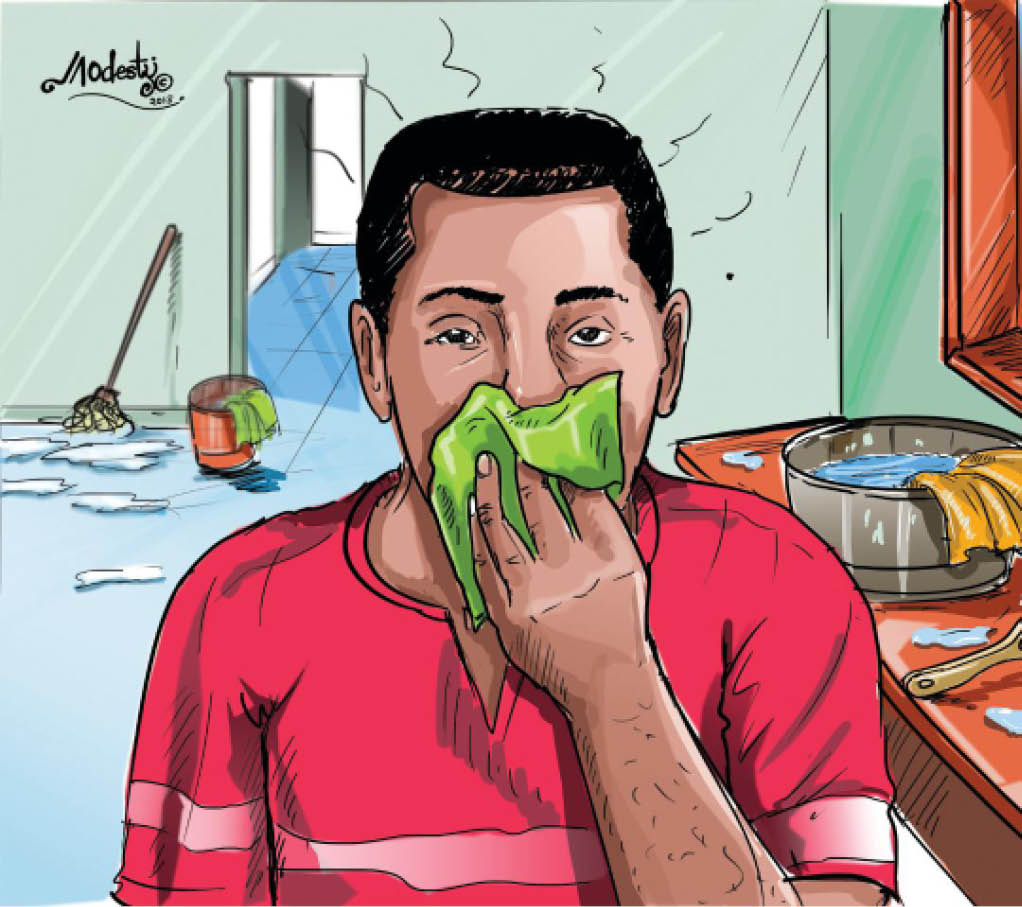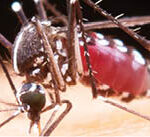Over the past few weeks, I have gotten numerous phone calls, text messages and in-person consultation over a very common symptom—fever. Suddenly everyone that walks into the clinic has terrible headaches and fever. In almost every household- there is someone down with high-grade fever, sometimes accompanied by catarrh and cough. And they all say the same thing—‘It must be the change in weather.’
This October weather is hard to define; when the rains are coming to an end but it is not quite Harmattan yet. When the daytime wind has lost its humidity and is beginning to get dry but the sun is still scorching hot. This confusing weather—when there is a cold drought at dawn and the leaves are beginning to turn yellow yet, as soon as the sun rises, sweat starts to form on our foreheads. What the white man calls Fall. It is this transition from the rainy season to Harmattan that we hold accountable for the spike in febrile illnesses.
- North Central can produce president, APC national chair – Al-Makura
- Anambra poll: INEC raises security concerns as 86 polling units have no voters
But is it really because of a change in weather? Can a sudden shift in the weather trigger certain illnesses?
Most people would agree, sudden weather changes can make you feel under the weather. It can’t actually make you sick, you need to be exposed to the actual bacteria or viruses, but it can weaken your immune system and make you more susceptible to those germs. Cold air can make your nose run and constrict airways. And if there’s a storm (rain or sand) on the way, the atmospheric pressure changes can cause joint pain or even migraine headaches for some people. Additionally, after the rain, the rise in pollen can make your allergy symptoms worse. Medically, there are six health conditions that can be triggered by a sudden change in the weather.
The first is: Infections and illnesses of the upper respiratory tract. Often, we (and by ‘we’ I mean doctors) discover that patients are dressing inappropriately. Patients are not wearing enough layers or they’re wearing too many layers, and so their bodies get overheated or too cold. This can affect their immune response and can trigger upper respiratory infections.
Secondly, a change in weather may worsen chronic sinus and throat issues. Dehumidified air filled with pollen, dust, mould and mildew is a perfect storm for severe and chronic sinus and throat issues. So, it’s important to change or clean air filters (for air conditioners) every six months. It is also recommended to purchase a humidifier to add moisture to the air.
Thirdly, seasonal asthma and bronchitis are trigged by cold air. People who have these conditions should be prepared to use an inhaler seasonally to avoid severe and chronic coughing episodes. There is a physiological response to cold air that causes your airways to close down and tighten up so if you have asthma, that response can be dangerous. You’ll see a lot of people who have bronchitis, coughing, wheezing and shortness of breath throughout cold temperatures. These people need to be a little more aggressive with the control of their lung health.
Fourthly, there are seasonal allergies from pollen. Plants get just as confused as people do with the changing weather patterns. This means flowers bloom early and release pollen, which can aggravate people with seasonal allergies.
Additionally, a change in weather aggravates muscle and joint injuries. This is what the Hausa man calls ‘ciwon sanyi’ or ‘romantism’(rheumatism) in pidgin English. When the weather warms up, people are eager to head outdoors. But being extremely active on muscles and joints that have been hibernating during the cold months can lead to injuries. A good rule to remember before jumping into physical activities is to start low and go slow, at least initially as it might take a few weeks to shake the rust off. This is especially true in elderly people with osteoarthritis or those with old trauma injures.
Lastly, this weather change causes cold and flu outbreaks. And this I think may explain some of the febrile illnesses I have been witnessing. As the weather temporarily transits to Harmattan, it is common for families, co-workers, and school children to gather for group activities. September is also the beginning of the school year, therefore, if one person is sick with a cold or the flu, you may see a minor “outbreak” of illness following those gatherings. The common cold as we know it, is caused by many viruses and additionally complicated by many more bacteria, common of which is strep pyogenes. Its symptoms include fever, headache, catarrh, cough and sometimes pain on swallowing.
However, another confounder is the fact that Malaria is still very much endemic in Nigeria. And even though it peaks during the rainy season, more than half of the patients admitted due to febrile illness test positive for malaria. The average Nigerian will have taken some form of anti-malarial medication for fever before coming to the hospital or looking for a doctor. Some will even go as far as taking injections, yet the fever persists. Which begs the question: are our antimalarials authentic? Why is the fever persisting and the malaria parasite still present after taking drugs and injections? And why do they get better after receiving treatment (IV artesunate or quinine) in the hospital?
Or is it COVID-19 and we just do not want to say it out loud?
When my carpenter’s mother called me to tell me that he was seriously unwell and would like to come to the hospital- I suspected COVID. Fever, which had refused to subside after admission at a private hospital, associated with cough and severe headache. He confessed to having no taste in his mouth and diarrhoea. His COVID test came back positive. Thankfully after a few days in the isolation centre, he was discharged home. Unfortunately, over the next few days, the entire household caught the infection and had febrile illnesses. I told them what medication to take and to stay home. I don’t want to hear stories that touch the heart.
And while we are debating whether to declare another wave of COVID, cases of yellow fever are being reported all over the country. Double wahala for dead body.
The rise in febrile illnesses recently is alarming and a public health concern. Be it is a common cold, or malaria or yellow fever or even COVID-19 It is something that should concern us all and should not be dismissed as merely ‘a change in weather’.

 Join Daily Trust WhatsApp Community For Quick Access To News and Happenings Around You.
Join Daily Trust WhatsApp Community For Quick Access To News and Happenings Around You.


